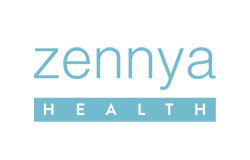
We reviewed over 200 businesses worldwide*, and have identified over 165 businesses operating in the care economy across Latin America, Sub-Saharan Africa and Asia who met the following 4 criteria:
1. Geography focus: operating in project target countries.
2. Care economy impact: business activities recognize, reduce, reward or redistribute care work.
3. Proof of concept: care economy activities at least at the launch stage (none of the businesses are at concept stage).
4. Market-based intervention: already or planning to be financially profitable or to generate income in the medium term.
Out of the mapping we selected 60 businesses to conduct a full profile and showcase potential investment opportunities. These profiles have been created from information and data provided by the business itself. Use the filter on the left to access the businesses profiled.
* Disclaimer: The data presented in the business mapping and profiles is based on information provided by the businesses and has not been independently verified
1. Geography focus: operating in project target countries.
2. Care economy impact: business activities recognize, reduce, reward or redistribute care work.
3. Proof of concept: care economy activities at least at the launch stage (none of the businesses are at concept stage).
4. Market-based intervention: already or planning to be financially profitable or to generate income in the medium term.
Out of the mapping we selected 60 businesses to conduct a full profile and showcase potential investment opportunities. These profiles have been created from information and data provided by the business itself. Use the filter on the left to access the businesses profiled.
* Disclaimer: The data presented in the business mapping and profiles is based on information provided by the businesses and has not been independently verified
Filter Your Results
Washly BD
Website: washlybd.com
Headquarters: Bangladesh
Country of Operations: Bangladesh
Women owned / led: None

About the organization: Washly BD is a for-profit entity that provides laundry services to urban households in Bangladesh. Customers can use online platform or the app to request for laundry pick-ups that are delivered within 24 hours. Washly BD’s services reduce the burden of washing, drying and ironing clothes, bulk of which is undertaken by women.
Stage of Growth: Launch/Pilot
Types of Services: Domestic services, Labor saving solutions
Activities in the care economy: Provision of affordable services that provide care & domestic work
Pathway to impact: Reduce
Zennya Health
Website: www.zennya.com
Headquarters: Philippines
Country of Operations: Philippines
Women owned / led: Information not available

About the organization: Zennya is a for-profit company that provides online doctor consultations as well as home medical services in Philippines. Through provision of services such as general health check-ups and medical tests at home, it redistributes and reduces the burden of care work on the family members. It also enables patients to receive the care they need without leaving their homes, doing away with the potentially cumbersome transport arrangements and long wait times at clinics and / or hospitals.
Stage of Growth: Mass roll-out/Expansion
Types of Services: “Infant-care (children younger than 1-year)
Child-care (Ages 1 to 5) Child-care (Ages 6 and above) Elderly-care (Ages 60 and above) Care for persons with special needs (disabled / differently abled persons) Care for people with illnesses”
Child-care (Ages 1 to 5) Child-care (Ages 6 and above) Elderly-care (Ages 60 and above) Care for persons with special needs (disabled / differently abled persons) Care for people with illnesses”
Activities in the care economy: services & policies/practice that improve condition for domestic & care worker (e.g. apps that calculate decent remuneration)
Pathway to impact: Redistribute
Zolvers
Website: zolvers.com
Headquarters: Argentina
Country of Operations: Argentina, Mexico, Chile, Colombia
Women owned / led: Founded by at least one woman, At least 51% owned by women, At least 30% women in senior leadership positions

About the organization: Zolvers is an online platform that aims to improve the lives of 17 million domestic workers in Latin America through better job opportunities and financial inclusion. Zolvers offer a range of care and household services: accompaniment for the elderly, nursing, care for people with disabilities, plumbing, painting, electricity services, gas filters, house and office cleaning, installation services, and general repairs. They directly impact the redistribution of care and domestic services to a third party, helping to reduce the time households spend on those activities. Through technology, its mission is to connect customers with people looking for cleaning or home maintenance work.
Stage of Growth: Mass roll-out/Expansion
Types of Services: Elderly-care (Ages 60 and above), Care for persons with special needs (disabled / differently abled persons), Care for people with illnesses, Domestic services, Labour saving solutions
Pathway to impact: Recognize, Reward, Redistribute
